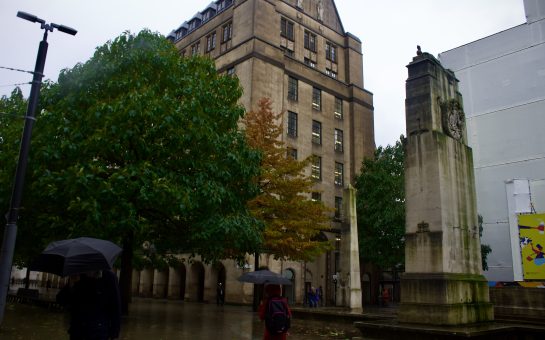Research headed by top University of Manchester scientists has uncovered a naturally occurring molecule that could protect patients from the effects of degenerative arthritis.
The molecule, Urocortin, protects cells in the joints from being destroyed and could be used in the development of new medicines that could help prevent joint degradation caused by the disease Osteoarthritis.
Symptoms associated with the debilitating condition include loss of joint mobility, damage to the cartilage around bones and inflammation of the tissues.
However scientists hope this will become a problem of the past as they believe the discovery could lead to new developments that will create the much-needed medicine to prevent over 140,000 hip and knee replacements performed by the NHS every year.
Professor Paul Townsend, joint lead researcher along with Dr Ian Locke, the University of Westminster, told MM: “It’s pretty early days but what we’ve seen is pretty dramatic.
“Some work we did years ago was to look at the role of this molecule and its family members.
“There’s three of them – Urocortin 1, 2 and 3 and they’re very clever little things that act like locks and keys in complicated combinations,” he explained.
“What we saw with this naturally occurring molecule is that it’s absolutely essential and needed for the absolute survival of the chondrocyte cells which make the cartilage.
“But when we deplete the Urocortin from the environment in the joint it absolutely causes huge amounts of the chondrocytes to die.
“By the Urocortin being there it keeps the cells happy and by keeping the cells happy it keeps the joints happy and therefore gives you mobility. Simple as that!”
Simple it may seem, but the potential of this incredible molecule has only been discovered following 15 years of dedication and work by Professor Townsend and his team.
The hard work doesn’t stop there though as the professor looks forward to the next stage in the development of treatment for the condition.
He said: “The next step forward is quite logical. We’ve seen it in some samples of human disease and human development but what we need to do now is ‘big up’ that study.
“We need to correlate the study with different types of osteoarthritis in man and various cohorts and genetics that underly that.
“Although Urocortin is a great molecule it’s not the best as it has some side effects. One thing we’re trying to do is improve on Mother Nature and make a better Urocortin.”
Those with the condition are likely to benefit greatly from the outcome of the research as current treatment only holds very limited success.
He added: “There are already treatments out there but most are anti-inflammatories or steroid agents which are great in the short term but have serious knock on effects.
“There are also some anti-body treatments for osteoarthritis therapies but these are ridiculously expensive and so we need something better that acts longer and is cheaper.
“We seriously believe Urocortin’s that.”
Picture courtesy of MyArthritis via Flickr, with thanks
For more on this story and many others, follow Mancunian Matters on Twitter and Facebook.



